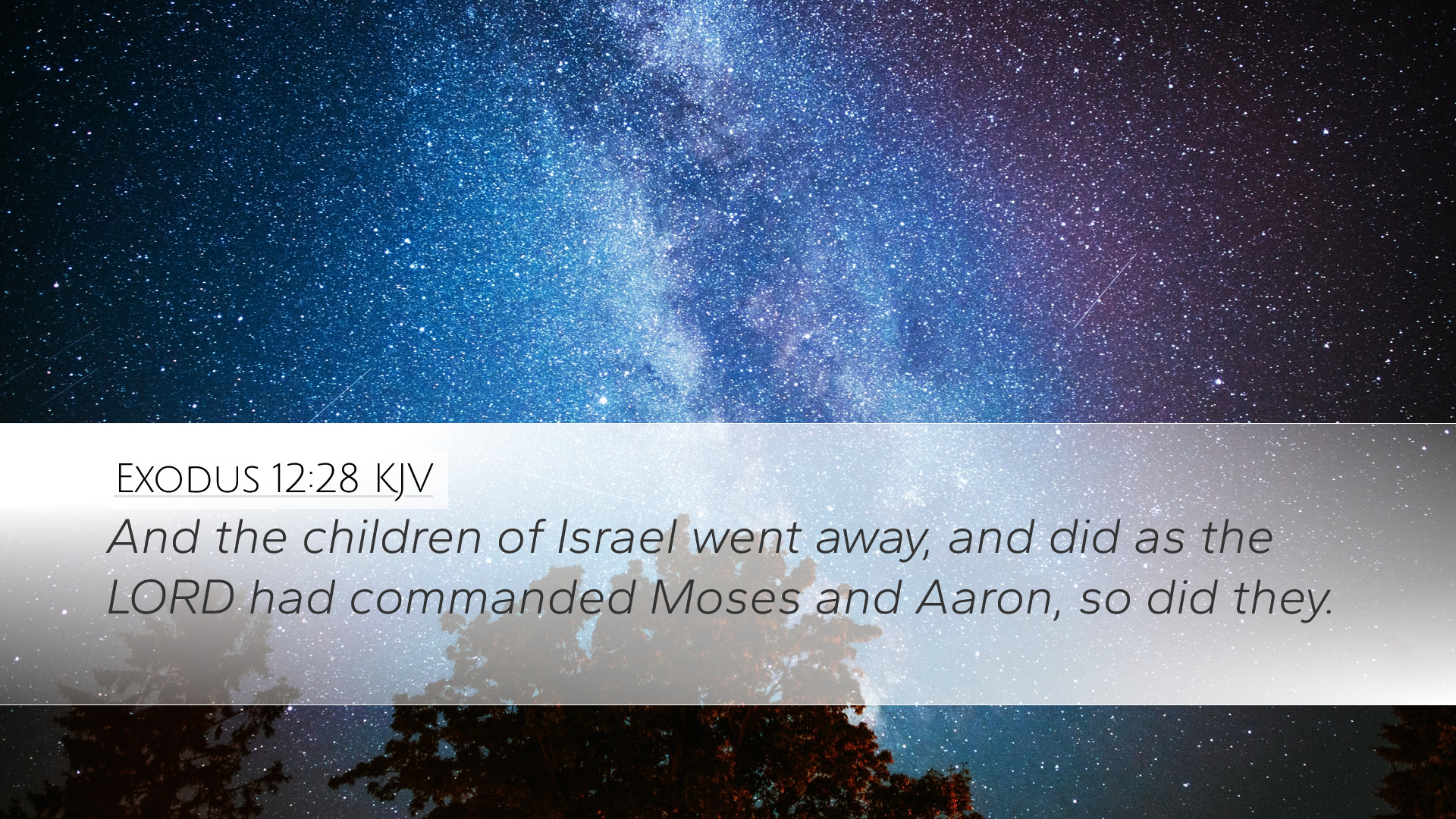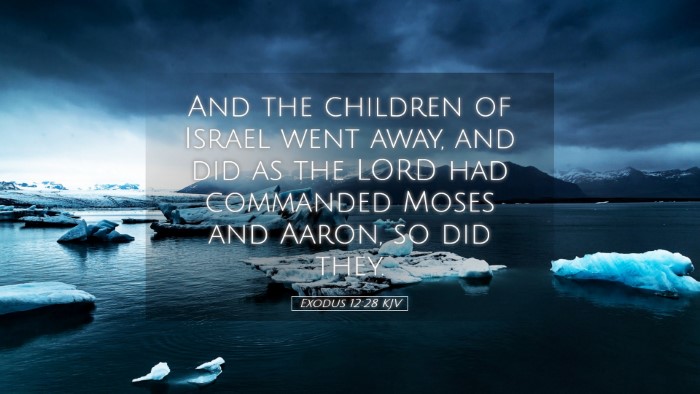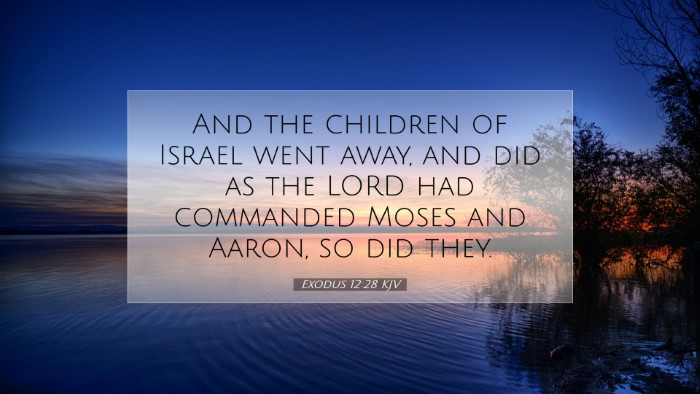Exodus 12:28 Commentary Summary
This passage marks a significant moment within the narrative of the Exodus, where the Israelites prepare to leave Egypt, responding to God’s command regarding the Passover. The verse reads: “And the children of Israel went away, and did as the Lord had commanded Moses and Aaron; so did they.” (Exodus 12:28, KJV). Below is a detailed commentary based on insights from public domain commentaries.
1. Contextual Background
The Book of Exodus outlines the development of Israel's identity and their covenant relationship with God. It narrates their oppression in Egypt and the subsequent deliverance initiated by divine intervention. This specific chapter culminates in the institution of the Passover, a pivotal event establishing God's salvation through obedience.
2. Theological Significance
Obedience to Divine Command: The obedience of the Israelites in this verse serves as a model of faith. Matthew Henry emphasizes that their departure aligns with God's directives, reflecting a community that is willing to follow heavenly instructions even amid uncertainty.
- Spiritual Preparedness: Albert Barnes notes that the preparation for the Passover indicates a readiness to respond to God’s salvific acts. This readiness is essential for spiritual growth and understanding one’s role in God’s plan.
- Importance of Community: Adam Clarke comments on the collective action of the Israelites, underscoring the importance of communal faith and obedience. This act of unity not only reflects their individual faith but also strengthens their national identity as God’s chosen people.
3. The Role of Leadership
Moses and Aaron's role as leaders is paramount. They serve as God's mouthpiece and guides in navigating this critical moment. Henry points out that their leadership is characterized by vigor in delivering God’s commands. Their faithfulness exemplifies servant leadership that is pivotal for the Israelite community's success in obedience.
4. God's Sovereignty and Providence
This passage also illuminates the sovereignty of God. The act of the Israelites leaving Egypt is a manifestation of God’s providential care. Clarke elaborates that the systematic execution of God’s commands proves His authority over both nature and nations. The Israelites’ departure symbolizes liberation not only from physical bondage but also a spiritual awakening to their identity as God’s chosen people.
5. Reflection on Worship
Worship through Obedience: In observing the Passover, the Israelites engage in an act of worship through their obedience. As Barnes observes, the observance of this sacred ritual is integral to their worship life, representing not only a feast of remembrance but also a commitment to follow Jehovah’s laws.
6. Implications for Modern Believers
The implications of Exodus 12:28 extend to contemporary faith practices. Believers are called to reflect upon their own responses to divine instruction. This calls for a heart posture of readiness and trust, where faith translates into action:
- Listening to God’s Voice: Just as the Israelites listened to Moses and Aaron, modern-day believers are encouraged to seek God’s guidance through prayer and scripture.
- Community in Faith: The collective journey of the Israelites reminds believers of the strength found in unity and shared faith experiences.
- Sacred Rituals as Expressions of Faith: The observance of sacraments and rituals in the Christian faith serve as modern parallels to the Passover, emphasizing the continuity of worship through obedience.
7. Conclusion
Exodus 12:28 encapsulates a foundational theme of obedience, community, and divine sovereignty. For pastors, students, theologians, and Bible scholars, this passage is a reminder that God’s commands lead to deliverance and that the faithful response of His people is vital. As the narrative progresses, it echoes a journey not just of physical liberation, but of spiritual awakening and formation of identity. The lessons gleaned from this verse are eternal, urging a faithful response to the God who acts redemptively in history and today.


